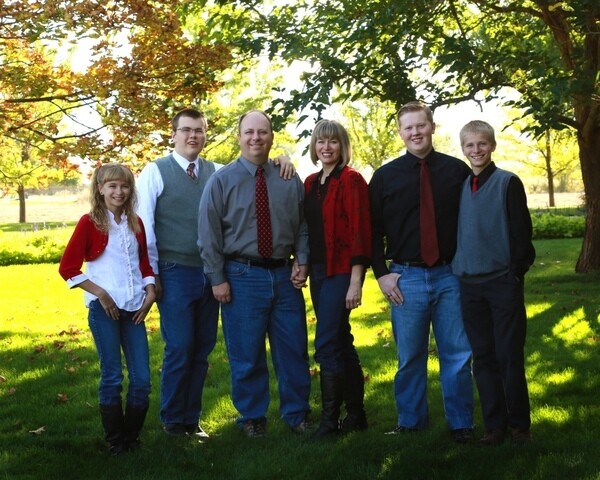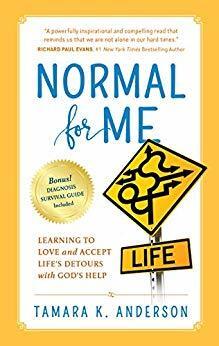Our son is 20 years old and hasn't been baptized—there is a "not accountable" on his church records. Nathan has autism and is minimally verbal. We have another son who is high-functioning on the autism spectrum, and he is now a priest and helps bless the sacrament.
Through the years, we have had so many incredible ward members who have blessed our family and made it easier for us and our children to participate in church activities. Here are a few ways others have helped us that can be adapted into meaningful ways you can support families in your ward with special needs.
1. Help when you see a need.
When we were a young married couple living in California with two very busy boys, my husband was called into the bishopric. I didn't even know how I would make it through sacrament meeting without his help. Yet someone noticed. She simply came and sat by me the first Sunday after he was called. She was an empty nester and helped me juggle my children and stayed with my busy toddler when my baby was fussy.
God has sent ward members and living angels to help me many times since then as our family grew and we were blessed with two sons with autism.
“A new commandment I give unto you, That ye love one another; as I have loved you, that ye also love one another. By this shall all men know that ye are my disciples" (John 13:34–35).
To this day I feel so very grateful to these amazing, observant souls who simply saw a need and stepped in. Of course, I had to be humble enough to accept the service, which was difficult at first until I realized even Jesus Christ, the Savior of the world, asked for help from others.
2. Volunteer in advance to help.
There were other times I remember calling people in advance to help during sacrament meeting. During one particular Sunday, my husband and I were singing in a special musical number and I had to swallow my pride and ask a couple of friends to come sit with our children when we went up to sing. I knew I could call on them to help because they had volunteered and ministered to me in the past.
That night I recorded in my journal:
"Sunday, May 18, 2003 "It was a hard day at church with Nathan. He screamed and cried through most of the meeting. Justin and I were both moved to tears. It is so hard. "Justin and I sang in an octet, “Lord, I Would Follow Thee,” and I had to try not to think too hard about the words so I could stay composed during the song. What poignant words we had to sing, “In the quiet heart is hidden sorrow that the eye can’t see . . . Find in thee my strength, my beacon.” "I feel so weak, so overwhelmed. I feel like I don’t know how to approach this. I want to have hope, but I feel like my burden is heavy today."
Elder Ulisses Soares explained how these wonderful souls followed the Savior's example of ministering to our family:
“As we study the scriptures, we notice that the Savior ministered to people according to their specific needs. . . . “Jesus showed patience and love to all who came to Him seeking relief for their physical, emotional, or spiritual illnesses and who felt discouraged and downtrodden. “To follow the Savior’s example, each one of us must look around and reach out to the sheep who are facing the same circumstances and lift them up and encourage them to proceed on the journey towards eternal life" (Ulisses Soares, “Feed My Sheep,” Ensign, Nov. 2005, 98).
3. Be willing to integrate those with autism in weekday activities.
High-Functioning Integration
Jacob, our son with high-functioning autism, participated in the Cub and Boy Scout programs. Jacob always wanted to be moving, doing, and learning.
Jacob's leaders were able to keep in touch with us and accommodate him quite well. In fact, both my husband and I spent time helping in Cub and Boy Scouts. When Jacob was old enough to go to campouts, my husband went with him to help him transition to a different environment. The other leaders were also kind and helpful. They found things he was good at, gave him a job, assigned him chores, and gave him time to decompress.
Jacob eventually got to the point where he went to the campouts without dad. This was quite an accomplishment. He even surprised us by earning his Eagle Scout award, which I never could have imagined for the little boy who cried during his first pinewood derby. I am glad that his leaders were open and worked with my husband and I to keep him coming.
Low-Functioning Integration
Nathan did not want to participate in weekly activities, which were unpredictable and varied each week. He prefers a very simple, predictable schedule.
One of the things the young men in our stake did to help Nathan be a part of their quorum was to find out what he enjoyed and plan occasional special activities around him. When Nathan was 12 years old, his deacons quorum found out he loved bowling. They arranged to do a bowling night, and I attended with him where I joyfully (and tearfully) watched as these young men set up pins and cheered my sweet son on. The activity evolved to where the deacons acted like bowling pins and would fall over when Nathan bowled a ball into them.
The teachers and priests in our current ward have also had activities with Nathan. They came to our home and rotated through activities he enjoys: Wii bowling, dominoes, and creating the papers Nathan does on Sundays during Young Men classes. Both my husband and I have had the opportunity to visit Nathan and Jacob’s quorums and talk about what autism is and how sweet it is to have these amazing souls in our home.
In addition to regular ward activities, find out what disability resources are available in your area, for example some areas have special needs multi-stake activity programs, by contacting your stake disability specialist.
4. How to help incorporate those with special needs into Sunday lessons.
When we had the three-hour block schedule, Nathan attended Young Men with the other boys his age. Nathan's older brother Jordan is 16 months older than him and was able to help Nathan when he transitioned to a new class. Jordan also taught the other young men how to sit by Nathan and help him at the table they set up for him each week.

On Sunday, Nathan takes a large roller bag filled with activities to keep him happy and busy at church. The young men have helped us even make some of the simple papers he cuts and glues to use during class.
The instructors also helped Nathan participate by drawing Hangman games on the board, which Nathan is a whiz at solving.
It’s important to note that each person with special needs is different so the tools you use to keep them engaged will be different as well. Talk to their parents. Ask for tips and learn what works best for them.
5. Be willing to learn.
In 2018, the Center for Disease Control and Prevention (CDC) estimated that 1 in every 59 children will be diagnosed on the autism spectrum. We have had several children in our Primary who have autism.
Many years ago, I remember the Primary president approaching me and asking if I would come and talk to all the Primary teachers about autism. Because I felt inadequate doing this at the time, I asked if I could arrange to have my children's special education teacher present.
During the meeting, this wonderful educator emphasized these takeaways:
- Use a visual schedule to help those with autism know what to expect.
- Be consistent (with teachers, helpers, and schedules).
- Teach very simply and with visual clues.
- Give very short directions (one to two steps).
- Each child is different; find their strengths and praise them.
- Be calm and direct.
- Don't force eye contact.
- Have sensory breaks (bring toys or allow them to move around).
- Use timers to help them know how long you expect a certain activity to last.
- Let your students know what to expect. Transitioning to new and different activities can produce a melt-down unless those with autism anticipate the change. (Ex: In five minutes we will sing a song, go on a walk, or go to another room).
I am thankful our Primary leaders and teachers were willing to learn how to help and teach these kiddos on the spectrum so they could learn and participate to their best ability in a church setting.
6. Find the best situation for each child.
Even though both of my boys were not on the same mental or emotional level as other children their age, they did advance with their classes through the Primary and youth programs.
When they attended Primary, we found that the best situation was if they each had a "teacher" who helped them. These teachers became our children's friends and helpers and loved them so sweetly. I have had so many of those teachers come and tell me what a difference serving my sons made in their lives—it was their favorite calling. But it required a lot of work and planning. We spent several years figuring out the best scenario for each child.
One teacher had a little backpack she brought on Sundays just for my son, which was filled with little fidget toys he could use to help him keep still during the lesson. Another teacher knew Jacob didn't do well when we dropped him off at the classroom and came to get him after sacrament meeting so we didn't have to walk him to class.
Both of my boys love music and loved having singing time. Nathan had a hard time singing out loud when everyone else was, but if we had the words to the song printed out in front of him, he would follow along with his finger. This is how he participated in the Primary program. He even had a simple speaking part, which brought me to tears.
“The body [of the Church] hath need of every member, that all may be edified together" (D&C 84:110).
Little by little, we worked with the Primary to help my boys participate. It was a trial and error process, but we eventually figured it out.
7. Be willing to make adaptions.
Jacob has always attended his normal Sunday School class. However, it can be difficult for Nathan to sit through, participate in, and learn the gospel in Sunday School at his level. After chatting with the Sunday School president and the Bishop, we decided to have a simple Sunday School class just for Nathan using the nursery manual. So, for the past 8 years, Nathan has had many teachers rotate through and teach him from the nursery manual.
My husband and I had to initially train the teachers on how to teach him, but they have all loved this time with him where they sing Primary songs, have a simple lesson, and do an activity like a puzzle. Nathan also can learn the simple concepts of the gospel this way.
8. Be flexible and open to suggestions.
We have had to move several times over the years. Moving with typical children is challenging. Moving with kids on the autism spectrum (who hate any change to their schedule and situation) is particularly difficult.
With each new ward we have attended, my husband and I have always been quick to introduce ourselves, explain a little about our family, and tell them we are happy to help and serve.
We have also asked if we can share with them what has worked in the past with our special needs children. Education aids inspiration. We then have been able to help and train others to help our sons. My husband and I have also been able to serve in the Church because our children were being helped in other classrooms in a consistent, predictable, and loving environment.
I am grateful for leaders who were open to helping the “one” and who were flexible in how they accommodated their needs through meetings, classes, and activities.
9. Establish faithful friendships.
I am most thankful for the friendships we have formed with ward members through the years.
We have hosted impromptu game nights at our home with ward members, gone out to dinner, gone exploring in the summer, cried on shoulders, talked while walking, and loved one another through good and bad times. I am thankful these wonderful souls have loved me and my family despite how different we were.
We are normal for us, and they love us just as we are.
An interesting side note: being so obviously different made us more approachable to ward members with challenging or unusual circumstances. It’s been wonderful to empathize and connect with ward members as they navigate their own differences and challenges.
Through the years, my children have also had many adopted ward grandmas and grandpas or aunts and uncles since we have never lived close to family. They have blessed our lives as they ministered to us and our children with autism.
What a blessing it is to know I have several people I can call on to help in times of need. They truly exemplify the Savior's love.
Conclusion
I am thankful for the gospel of Jesus Christ, which has enabled me to have incredible ward families that span across the United States. What a blessing it is to know that no matter where we are, there are people willing to help us as the Savior would have.
Someday I hope all those who have supported us will hear the Savior's words, "Come, ye blessed of my Father, inherit the kingdom prepared for you from the foundation of the world." For my sons were in need, and you ministered unto them. They had a hard time fitting in, and you included them. My children were crying, and you hugged them. They needed help, and you came to their aid. "Inasmuch as ye have done it unto one of the least of these my brethren, ye have done it unto me" (Matthew 25:34, 40).
All images courtesy of Tamara K. Anerson
Tamara enjoys reading stories with happy endings, podcasting, gardening, writing, singing, chocolate, and going on dates with her husband, Justin. She is the mother of three boys (two of which are on the autism spectrum) and one girl. She is the author of Normal for Me, podcaster of Stories of Hope in Hard Times, and can be found on her website tamarakanderson.com.
Get her new book, Normal for Me, on Amazonor get a FREE eBook by visiting her website tamarakanderson.com during the month of April for Autism Awareness Month.



